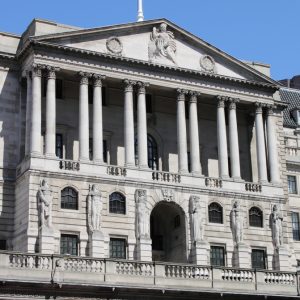
In its latest inflation report, the bank suggested that there were likely to be an average of around 60,000 approvals for purchase deals each month between the second and fourth quarters of the year.
This is down from the 65,000 monthly average it expected back in February.
In addition, the bank has sounded a more negative note on its expectations for house price growth. Back in February it expected house prices to increase by around a quarter of a per cent per quarter on average.
Now it has suggested that house prices are likely to fall by 1.25 per cent in the year to Q4.
The bank has also stood by its prediction of housing investment to fall by 0.5 per cent per quarter on average.
It released the report alongside the announcement that it was keeping the base rate on hold at 0.75 per cent.
What’s driving house price fall?
The Bank of England’s report suggested that the slowdown in house price inflation is largely down to issues such as Brexit hitting demand for property.
It cited the latest survey from the Royal Institution of Chartered Surveyors, in which 80 per cent of respondents noted it was one of the two biggest challenges currently facing the market.
The report said: “Given the relatively large costs associated with buying and selling houses, some households are likely to have delayed buying or moving house.”
The inflation report also pointed to “affordability constraints”, noting that the slowing house price inflation was most pronounced in areas where prices before the referendum were highest in comparison to incomes, such as London and the South East.
Improved supply may have played a part too. It said: “House building held up following the referendum, and in the year to April 2018, 222,000 dwellings were added to the housing stock in England, only just below the series high of 224,000 in 2008.
“Contacts of the bank’s agents have reported that in some regions, such as southern England, an excess supply of housing has led to a widening gap between asking and offered prices.”
What comes next?
Despite revising down its forecasts, the bank said it expects both house price inflation and housing investment to pick up in the longer term.
It said this is likely once “headwinds from uncertainty dissipate and stronger income growth supports the demand for housing”.














